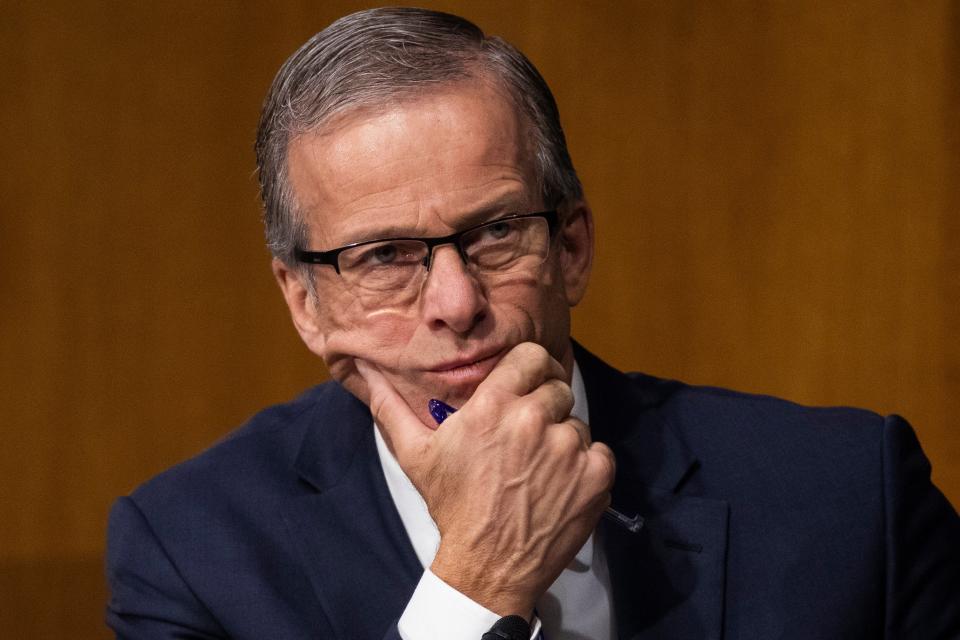GOP senator rejects $15 minimum wage saying he once earned $6 an hour, or $23 with inflation

Republican Senator John Thune has rejected an effort from congressional Democrats to raise the federal minimum wage from $7.25 an hour to $15, pointing to his $6 or less hourly wages that he earned working at a restaurant as a “kid”.
The senator from South Dakota – where the state-level minimum wage is set at $9.45 – said that raising “the minimum wage is something that is particularly troubling and harmful, at a time when you’re trying to get people back to work ... because it drives up the cost of hiring people” during economic fallout from the coronavirus pandemic.
Congressional Republicans have objected to efforts to raise the federal minimum – which is even lower for tipped workers – as part of a $1.9 trillion Covid-19 relief package proposed by the White House and due tor a vote in the House of Representatives on Friday.
Mr Thune, who is 60 years old, said he “started bussing tables at $1 an hour, I went up to $2.25 when they moved me up in the place, then I finally made it to cook, which was big time, that was $6 an hour.”
Read more: Follow live updates from the Biden administration
The senator graduated from Jones County High School in Murdo, South Dakota in 1979, when a $6 hourly wage – adjusted to modern inflation rates – would amount to roughly $23 in 2021 dollars.
Full-time workers earning the current federal minimum wage earn roughly $15,000 a year before taxes. The poverty line for single-person households is $12,880, according to the Department of Health and Human Services.
Under a proposed $15 an hour wage, minimum wage workers would earn roughly $31,200 a year.
I started working by bussing tables at the Star Family Restaurant for $1/hour & slowly moved up to cook – the big leagues for a kid like me– to earn $6/hour. Businesses in small towns survive on narrow margins. Mandating a $15 minimum wage would put many of them out of business. pic.twitter.com/izQDOGRAH1
— Senator John Thune (@SenJohnThune) February 24, 2021
The Independent has requested comment from Mr Thune’s office.
Senator Roger Marshall also said he had a “great part-time job” through high school and junior college to “supplement his income and helped me not have any debt when I finished college as well.”
The senator graduated from Kansas State University in 1984, when the average tuition for a four-year public university nationally was roughly $1,150. That cost is now more than $20,000 as of the 2017-2018 school year.
In 2019, 82.3 million US workers aged 16 and older were paid at hourly rates, representing 58.1 per cent of all wage and salary workers, according to the US Bureau of Labour Statistics.

 Yahoo Autos
Yahoo Autos 